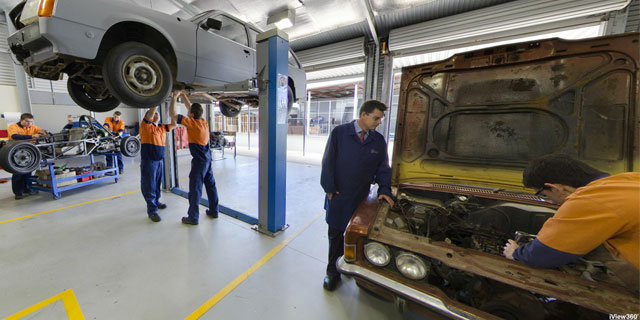Diesel engines are the workhorses of the automotive world, powering everything from pickup trucks to large commercial vehicles. They’re known for their efficiency and durability, but like any engine, they require regular maintenance to stay in peak condition. Sometimes, it can be challenging to know when your diesel engine needs a tune-up. This article will help you recognize the signs that suggest it’s time to give your vehicle the attention it needs.
Understanding Diesel Engine Maintenance
Contents
Before we dive into the signs, it’s important to understand what a diesel tune-up entails. Unlike gasoline engines, diesel engines don’t have spark plugs or distributors. Instead, they use compression to heat the air in the cylinders and ignite the fuel. A tune-up for a diesel engine typically involves checking the fuel, air, and emission systems, including replacing filters, bleeding the fuel system, checking for leaks, and ensuring the engine’s computer is functioning correctly.
Signs Your Diesel Engine Needs a Tune-Up
Decreased Fuel Efficiency
One of the first signs that your diesel engine needs a tune-up is a noticeable decrease in fuel efficiency. If you’re finding that your tank isn’t taking you as far as it used to diesel tuning australia, it could be due to a clogged air filter, dirty fuel injectors, or other issues that can be resolved with a tune-up.
Difficulty Starting
If your vehicle struggles to start, especially in cold weather, it could indicate that the glow plugs (which help to heat the cylinders in a diesel engine) need to be replaced. Difficulty starting could also point to problems with the battery, fuel lines, or compression system—all of which can be addressed during a tune-up.
Excessive Smoke
Excessive smoke from the exhaust can come in different colors, each indicating a potential problem. Black smoke usually suggests incomplete combustion, possibly due to a clogged air filter or faulty injectors. White smoke can indicate that fuel is not igniting correctly, perhaps because of low cylinder compression or problems with the fuel injection timing. Blue smoke might mean that oil is burning along with fuel, which can be a sign of serious engine wear.
Rough Idling or Stalling
An engine that idles roughly, stalls frequently, or feels less responsive when accelerating may benefit from a tune-up. These symptoms can result from issues such as dirty fuel filters, air leaks, or problems with the fuel injection system.
Unusual Noises
Knocking or ticking sounds coming from your diesel engine are not to be ignored. They can indicate problems such as injector issues or a need for valve adjustments, both of which can be remedied with a proper tune-up.
Check Engine Light
The check engine light is your vehicle’s way of telling you that something isn’t right. While it could indicate a variety of issues, it should never be ignored. A diagnostic scan during a tune-up can reveal the problem and allow for a timely fix.
Preventive Maintenance: The Key to Longevity
It’s worth noting that waiting for signs of trouble isn’t always the best approach. Regular preventive maintenance according to your vehicle’s service schedule can often prevent these symptoms from appearing in the first place. This includes regular oil and filter changes, fuel system cleaning, and air filter replacement.
The Importance of Professional Assessment
While some signs are clear indicators that a tune-up is needed, others may be symptomatic of more serious underlying issues. It’s important to have your vehicle assessed by a professional who can differentiate between a simple need for maintenance and a more complex repair.
Conclusion
Keeping an eye out for the signs listed above can help you maintain the health of your diesel engine. Regular tune-ups are a vital part of vehicle maintenance that can save you time and money in the long run by avoiding more significant repairs. By recognizing when your vehicle needs a tune-up, you can ensure that it continues to operate reliably and efficiently, keeping you safe on the road.
Final Thoughts
Remember that diesel engines are sophisticated and robust machines that require expert care. Keeping up with regular tune-ups not only contributes to the optimal performance of your vehicle but also enhances its resale value and longevity. When you notice any of the signs mentioned, it’s prudent to schedule a tune-up promptly. This proactive approach will keep your diesel engine running smoothly and reliably, mile after mile.

